Spelling Skills Normal Alphabet Worksheets for Ages 6-9
9 filtered results
-
From - To
Enhance your child's spelling skills with our specially designed Normal Alphabet Worksheets for ages 6-9. These engaging, effective worksheets are created to boost kids' understanding of word formation and spelling by focusing on key alphabetic principles. Each worksheet provides fun activities that foster learning through practice, helping young learners to recognize patterns, blend sounds, and spell with confidence. Perfect for classroom use or at-home practice, these worksheets support literacy development and set a strong foundation for future spelling success. Let's make learning spelling skills an enjoyable journey for your child!
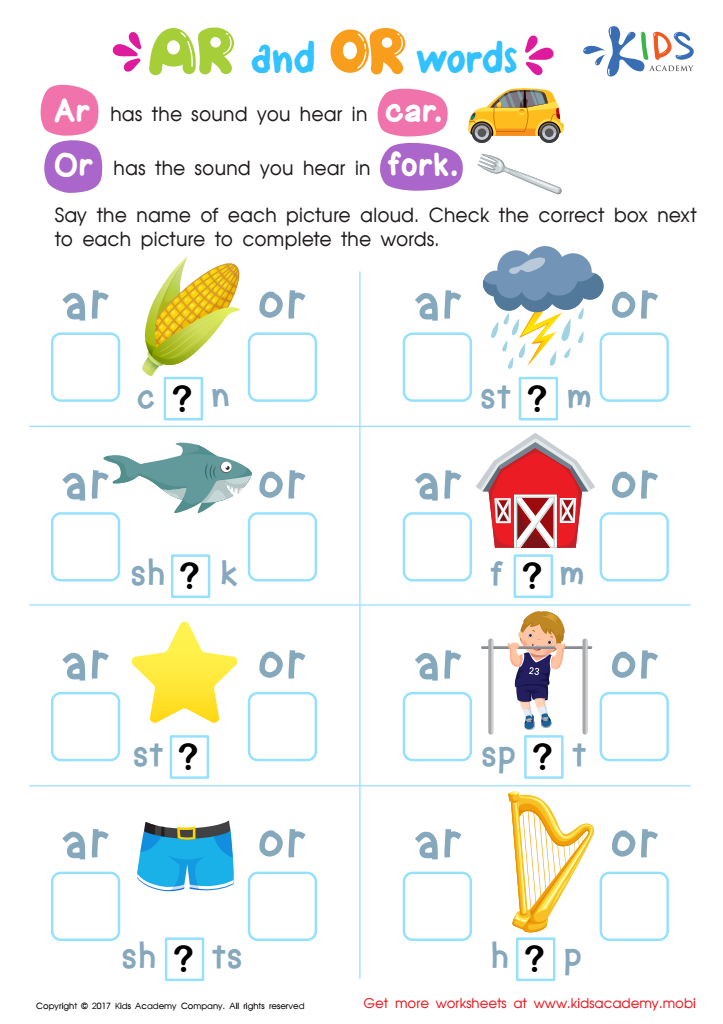

Ar and Or Words Phonics Worksheet
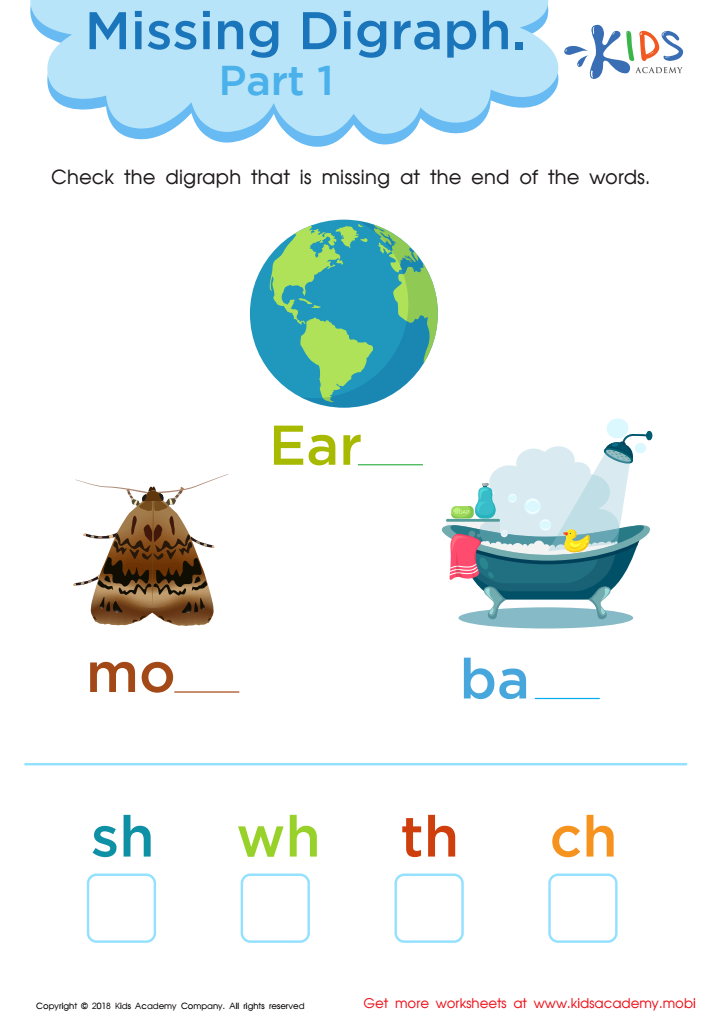

Missing Digraph: Part 1 Worksheet
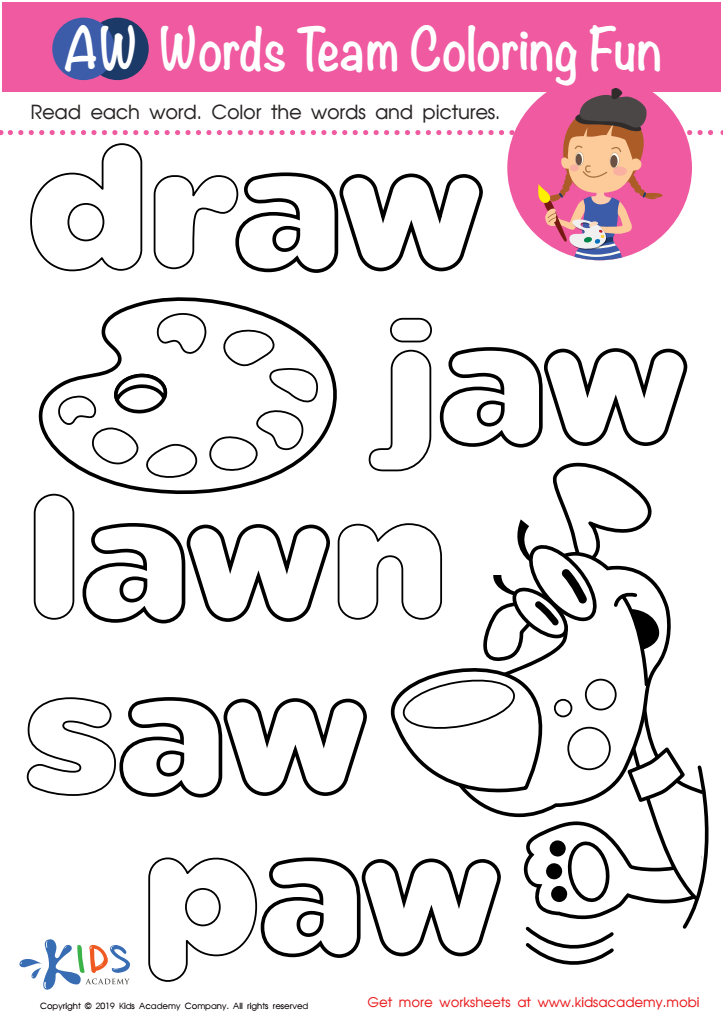

AW Words Team Coloring Fun Worksheet
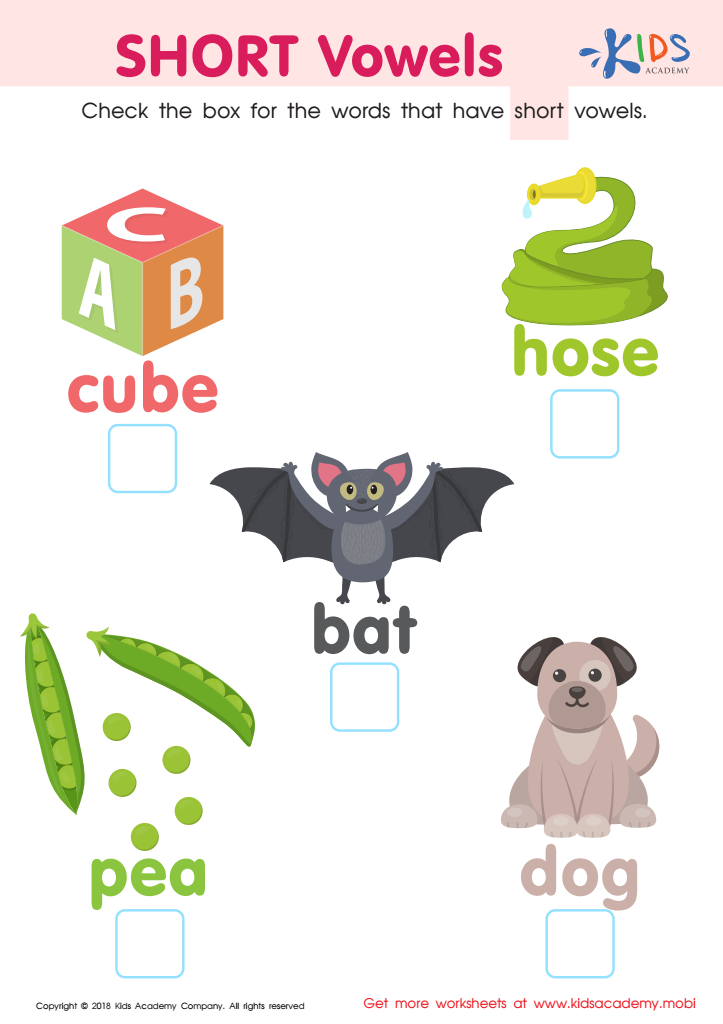

short vowels Worksheet
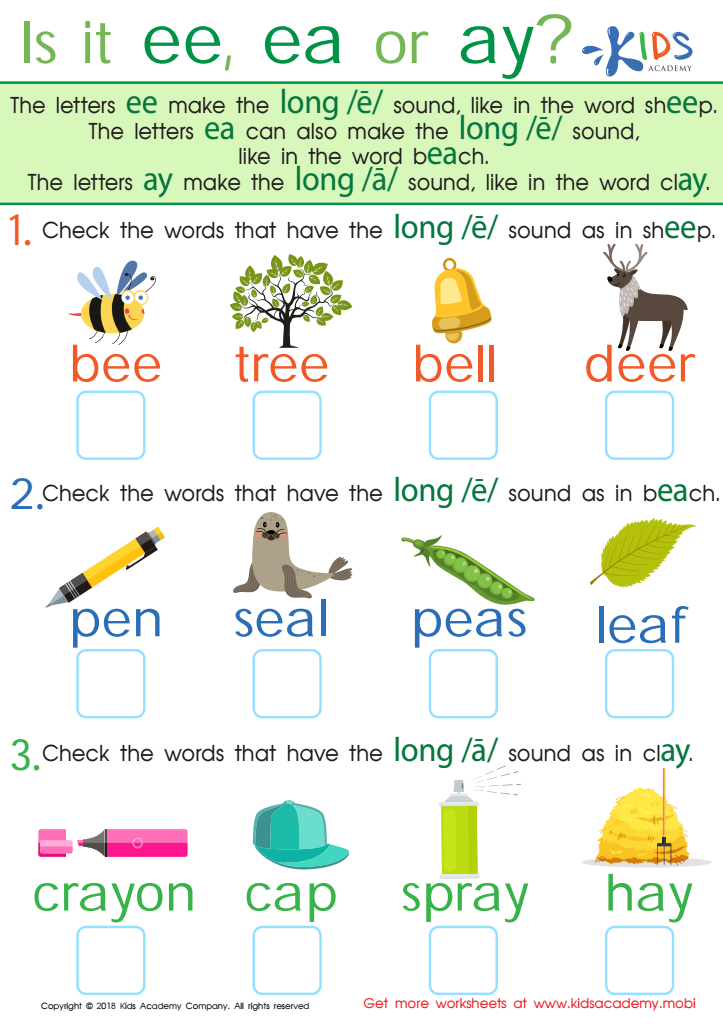

Is It EE, EA, or AY? Worksheet
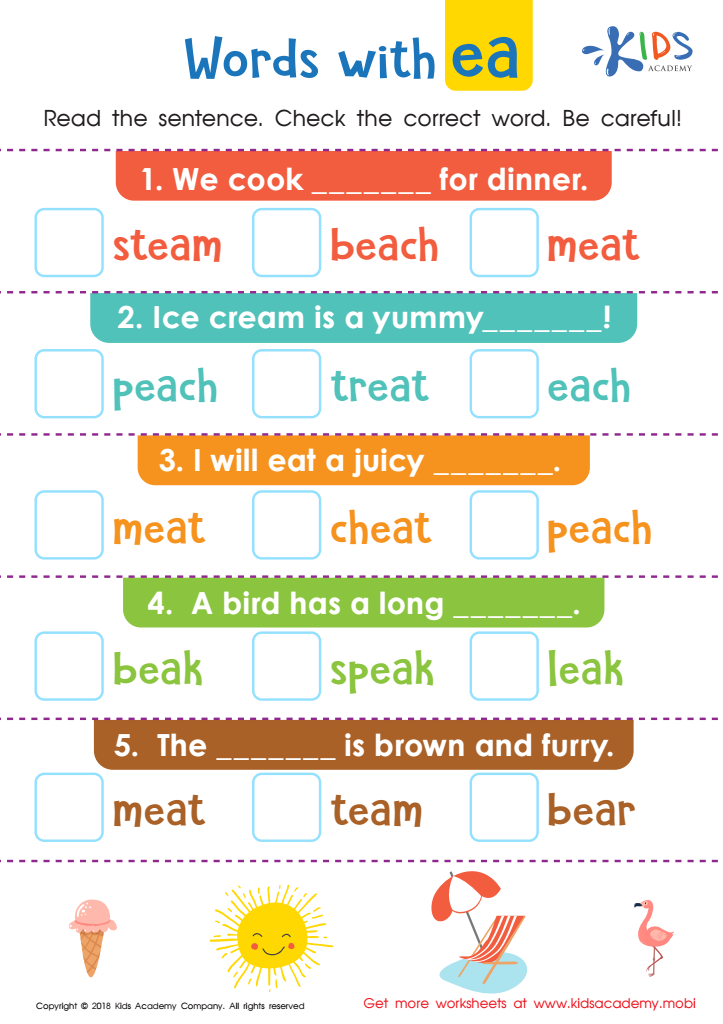

Words with ea Worksheet


Words with sound f Reading Worksheet


Phonics and Word Recognition: Assessment 2 Worksheet
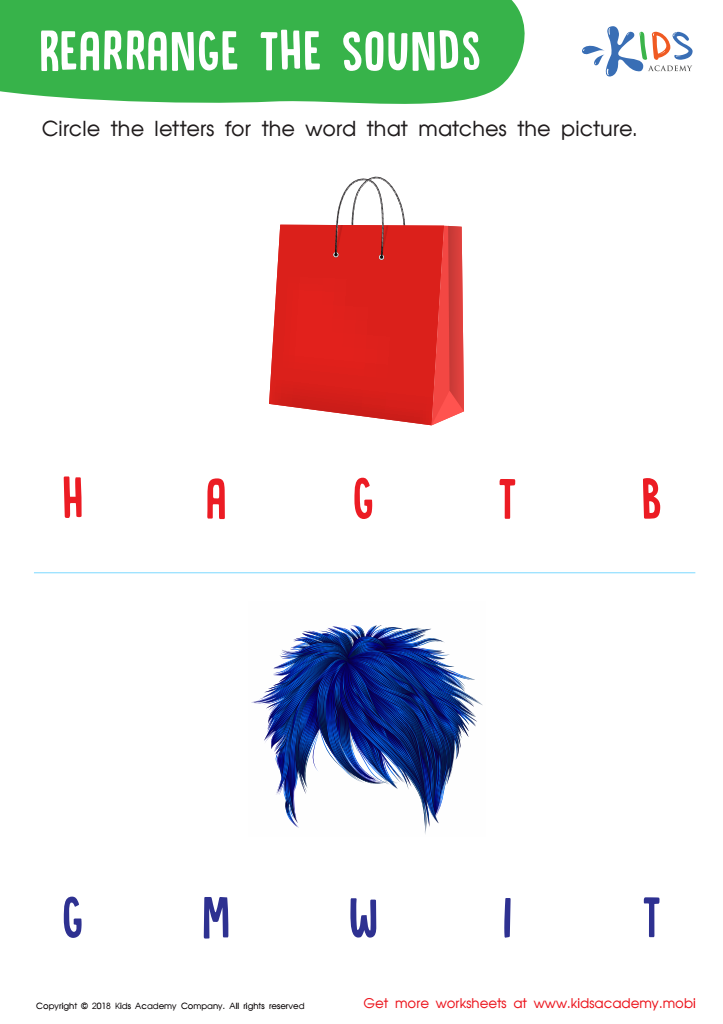

Rearrange the Sounds Worksheet
Developing strong spelling skills in children ages 6-9 is paramount as it forms the foundation for effective communication and literacy. This age range is a critical period for cognitive and academic development, where children transition from simple letter recognition to more complex reading and writing activities. Proficiency in spelling not only aids in accurate and fluent writing but also enhances reading abilities, comprehension, and vocabulary.
Parents and teachers should pay close attention to spelling because it underpins all subsequent language learning. Mastering the Normal Alphabet spelling rules and patterns helps children decode unfamiliar words, fostering independent learning and problem-solving skills. Consistent practice in spelling cultivates attention to detail, memory retention, and phonemic awareness—the ability to hear, identify, and manipulate sounds in spoken words, which is essential for reading proficiency.
Moreover, competency in spelling boosts children's confidence and self-esteem in their academic pursuits. It enables them to express their thoughts and ideas clearly and effectively, which is crucial for their overall educational success. Therefore, structured spelling instruction, integrated seamlessly into engaging and interactive activities, can significantly bolster foundational literacy and set children on a path toward lifelong learning and achievement.
 Assign to My Students
Assign to My Students

















